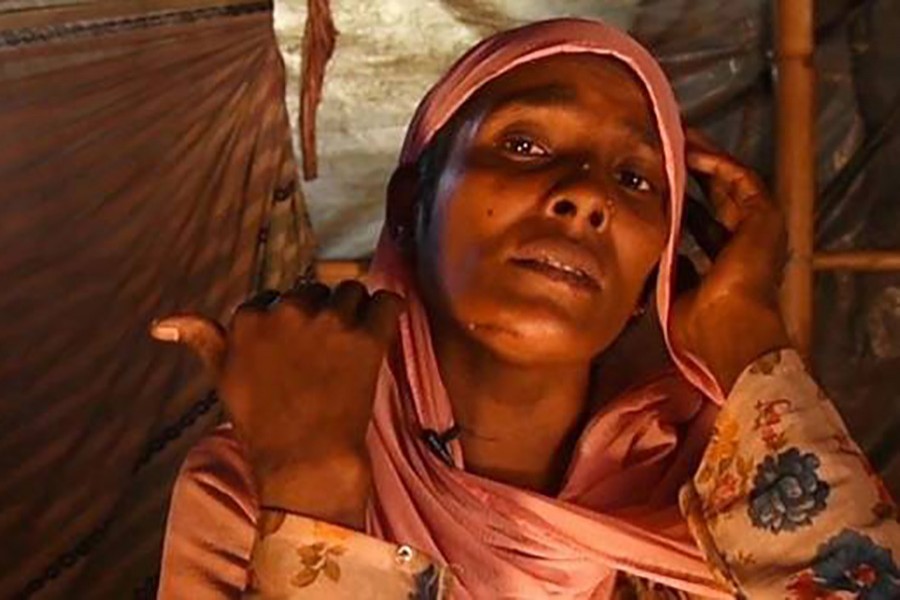Almas Khatun, a Rohingya woman, saw her seven children and husband murdered during a wave of massacres in Myanmar. She and thousands of other survivors now face new crisis as they are trying to survive in refugee camps in Cox's Bazar.
During 10 days in the camps, which are now home to more than 0.80 million (835,000) Rohingyas, Stuff.co.nz, a New Zealand news website, interviewed dozens of survivors.
It unfolds unimaginable atrocities committed by government soldiers and Buddhist mobs in Myanmar's Rakhine State since August this year.
Sitting on the dirt floor in a flimsy bamboo shelter, Almas Khatun pulls a pink shawl from her face to reveal scars across her cheek and throat.
"I saw my family killed with my own eyes," says the softly spoken 40-year-old survivor of Tula Toli, the most horrific massacre, mass rape and arson targeting Rohingya Muslim civilians in Myanmar.
Almas says that every night she has a nightmare that a soldier is pulling her three-month-old baby from her lap and slashing open his stomach, which actually happened moments before her house was set alight.
She wakes and weeps amid a sprawling mass of refugee camps carved into hillsides in southeastern Bangladesh, reliving the morning of August 30.
That was when soldiers ran – shooting and shouting obscenities – into Tula Toli, a picturesque village that sits in a bend where two rivers meet.
"They shot my old father, they put a log of wood in his mouth and then slit his throat," Almas says, wiping tears from her eyes.
"I keep thinking about my children. They burnt all my children and I couldn't save them. It breaks my heart. They killed seven of my children, my husband, and his two brothers." Almas says 60 of her relatives who were living in three houses in the village are dead.
"Some were slaughtered by monks."
More than a dozen previously interviewed witnesses to the massacre have said Buddhist monks were among the attackers, but Almas's detailed testimony implicates them directly in killings that took place in Buddhist-majority Myanmar, just across the border of Bangladesh.


